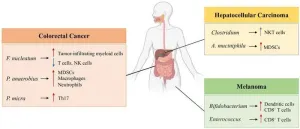London, United Kingdom, 10 August 2023 – Four major clinical trial networks based in low resource settings are embarking on an exciting partnership with the Good Clinical Trials Collaborative (“GCTC”) to enhance clinical research in low resource settings. By promoting the unique qualities of randomized controlled trials (RCTs) and the evidence they produce, the collaboration aims to support regional research ecosystems to prioritize collaborative, informative and efficient research responses to public health challenges.
ADVANcing Clinical Evidence in Infectious Diseases (“ADVANCE-ID”), Africa Health Research Institute (“AHRI”), Oxford University Clinical Research Unit (“OUCRU”), The Global Health Network (“TGHN”), and the GCTC coordinating center at Protas, have formed Good Trials Prism[1]. Supported and funded by Wellcome, Good Trials Prism will promote and implement the principles of good RCTs[2] to strengthen clinical trials systems in Latin America, Southeast Asia, and South Africa.
These principles are outlined in GCTC’s Guidance for Good Randomized Clinical Trials and incorporated in the recently published draft guidance for best practices for clinical trials by the World Health Organization.
Addressing challenges in low resource settings
Good Trials Prism is the first program of its kind to put these principles into practice across a diverse range of geographies and health challenges, particularly focusing on their applicability to low- and middle-income countries facing high rates of communicable and noncommunicable diseases, alongside limited research capacity and resources.
High quality, principles-based guidance can play a crucial role in mitigating these challenges by providing a robust platform for all stakeholders to focus their efforts effectively and work towards common goals.
A collaborative partnership
Central to Good Trials Prism is the development of education and training materials to promote understanding and adoption of the principles, openly available for others to utilize and benefit from. The program will also undertake capacity strengthening, policy, advocacy, training and communications work, including delivering workshops, webinars, and training courses to promote sharing of knowledge and best practices.
The networks will play a leading role in promoting and implementing the principles in their respective regions by leveraging their local knowledge and existing relationships, tailoring resources to the needs of their research environments.
Professor Sir Martin Landray, Senior Lead of the Good Clinical Trials Collaborative, said: “Good Trials Prism is a fantastic platform to further our mission to promote and support high-quality clinical trials globally. By working together to apply the principles of a good trial as outlined in our guidance and now in WHO’s draft guidance, this partnership seeks to strengthen clinical trial systems and help overcome barriers in generating reliable evidence in low resource settings and across the world.”
Dr Mo Yin, Deputy Director of ADVANCE-ID, said: "We need trials that are more relevant, fair, and transparent in areas where improved treatments are urgently required. ADVANCE-ID, in conjunction with Good Trials Prism, is dedicated to delivering such trials to enhance patient outcomes and bolster public health.”
Professor Limakatso Lebina, Clinical Trials Unit Lead of AHRI, said: “AHRI is pleased to be a partner on this important project. Working in a rural, under-resourced settings means we are acutely aware of the challenges of running high-quality trials in such a context. We look forward to helping develop and strengthen clinical trials capacity in the African region so that the latest drugs, vaccines, and diagnostics can be safely brought to the people who need them most.”
Ms Evelyne Kestelyn, Head of Clinical Trials Unit of OUCRU, said: “Being a part of Good Trials Prism allows institutions like OUCRU to share their vast expertise in clinical research and champion sustainable and equitable development of capacity in Southeast Asia. By embracing the principles of good clinical trials and working in tandem with other leading networks, we firmly believe we are well positioned to tackle the unique challenges facing clinical research and make a meaningful impact to health outcomes in this region.”
Professor Trudie Lang, Head of The Global Health Network, said: “Empowering researchers and healthcare workers to conduct high quality clinical trials in every healthcare setting with guidance, tools and support, will contribute to addressing the burden of diseases on health systems and save lives. This partnership is critical to ensure such resources are developed and implemented in contextually relevant ways and that all stakeholders may contribute to and benefit from these efforts”.
END
FOR MEDIA ENQUIRIES
The Good Clinical Trials Collaborative
Ee Ching TAN (she/her)
Email: eeching.tan@protas.co.uk
Tel: +44 (0) 7903908339
ABOUT THE GOOD CLINICAL TRIALS COLLABORATIVE
The Good Clinical Trials Collaborative (GCTC) is dedicated to developing and promoting the adoption of guidance to enable better randomized controlled trials (RCTs) globally. GCTC was established in 2020 and is led by Professor Sir Martin Landray. It is supported by Wellcome and the Bill & Melinda Gates Foundation and hosted by Protas, a not-for-profit company focused on enabling smarter trials for better public health.
Guided by the belief that good healthcare is informed by good evidence from good trials, GCTC’s objective is to make it easier to do good RCTs with new guidance that sets an international benchmark of scientific rigor, ethical integrity, efficiency and quality.
The new guidance was developed through collaboration with a diverse, multidisciplinary group of individuals and organizations with a shared commitment to help accelerate better healthcare across the world. Outlining the five underpinning principles of good RCTs, the guidance is intended to support all parties involved with RCTs of all types of health interventions, in all settings.
For more information, visit: www.goodtrials.org
ABOUT ADVANCING CLINICAL EVIDENCE IN INFECTIOUS DISEASES
ADVANcing Clinical Evidence in Infectious Diseases (ADVANCE-ID) is a clinical trial network tackling infectious diseases, to improve patient outcomes and minimize associated health-economic costs. The network is based on active collaborations amongst Asian and global healthcare facilities, each led by local clinicians, microbiologists, scientists and policy makers. These collaborations center around clinical studies which are relevant for the participating healthcare facilities, and will directly inform patient care decisions. ADVANCE-ID is based at the Saw Swee Hock School of Public Health, National University of Singapore (NUS). It is jointly supported by the Wellcome Trust, and Singaporean academic institutions including, NUS Yong Loo Lin School of Medicine, Duke-NUS Medical School, Nanyang Technological University Lee Kong Chian School of Medicine, and the National Centre for Infectious Diseases.
For more information, visit: @ADVANCE_ID
ABOUT AFRICA HEALTH RESEARCH INSTITUTE
Africa Health Research Institute’s (AHRI) vision is optimal health and well-being of under-resourced populations. AHRI is an independent, transdisciplinary scientific research institute based across two campuses in the province of KwaZulu-Natal (KZN) in South Africa. AHRI’s research combines population, basic and translational, social, and clinical sciences to understand and intervene in the health and well-being of South African communities. AHRI works in partnership with local communities and South African academic, governmental, and other policy stakeholders and collaborates with over 60 institutions globally. AHRI prioritises the training of the next generation of African scientists.
For more information, visit: www.ahri.org
ABOUT OXFORD UNIVERSITY CLINICAL RESEARCH UNIT
The Oxford University Clinical Research Unit (OUCRU) is a large-scale clinical and public health research unit based in Vietnam, Indonesia and Nepal. Our strategic aim is to have a positive and significant impact on global health and, in particular, the prevention, diagnosis and treatment of infectious diseases. OUCRU receives considerable support from Wellcome as part of the Africa and Asia Programmes. Together with our partners, we have led a highly successful effort in enhancing the infrastructure and capacity to perform clinical trials and basic scientific research in Vietnam, Indonesia and Nepal. Our 10-year vision is to have a local, regional and global impact on health by leading a locally driven research programme on infectious diseases in Southeast Asia.
For more information, visit: www.tropicalmedicine.ox.ac.uk/research/oucru
Or email: communications@oucru.org
ABOUT THE GLOBAL HEALTH NETWORK
The Global Health Network aims to enable research in every healthcare setting - driving equity in where research happens, who leads and who benefits. This happens through an interconnected network of regional centers and through the digital platform that hosts diverse global communities of practice and knowledge hubs, free online training, events, tools and resources. This is how we connect excellence, transfer knowledge, build capacity and foster exchanges in health research between and across diseases, regions and organizations.
The Global Health Network is a WHO collaborating center for research information sharing, e-learning, and capacity development.
For more information, visit: www.tghn.org
ABOUT WELLCOME
Wellcome supports science to solve the urgent health challenges facing everyone. We support discovery research into life, health and wellbeing, and we’re taking on three worldwide health challenges: mental health, infectious disease and climate and health.
For more information, visit: www.wellcome.org
NOTES TO EDITORS
Five principles of good RCTs
1 Good RCTs are designed to produce scientifically sound answers to relevant questions
RCTs should help resolve important uncertainties about the effects of health interventions. This requires the combination of key design features such as proper randomization to avoid selection bias, adequate sample size to minimize the play of chance, unbiased assessment of outcomes, and intention-to-treat analyses.
2 Good RCTs respect the rights, safety, and wellbeing of participants
Ethical clinical trials combine seeking answers to important questions with scientific validity and appropriate protection and respect for all involved, especially participants. Independent review of proposals for new research, through a research ethics committee (or equivalent), is an important governance tool and can help ensure appropriate steps are taken to protect the rights and welfare of participants. Accessible, clear communication and relevant consent at all stages of an RCT are at the heart of this principle.
3 Good RCTs are collaborative and transparent
All those involved in RCTs share responsibility for building and sustaining the trust of collaborating partner organizations and clinical communities, participants, and the wider public. Trust is undermined by lack of relevance or transparency and lack of respect for the rights and values of participants and those whose care will be influenced by the results.
4 Good RCTs are designed to be appropriate for their context
Ensuring that a trial is set up to be practicable and produce reliable, actionable results is an important scientific and ethical duty. Consideration of the context and existing resources in a proposed trial setting can better inform effective trial design.
5 Good RCTs manage quality effectively and efficiently
Delivery of a high-quality trial requires competent decision making and coordinated execution. Good governance and good trial quality management can help achieve these features. The focus should be on adopting risk-based proportionate approaches, identifying the key issues that would have a meaningful impact on participant wellbeing and safety or on decision making based on the trial results.
[1] The name Prism underlines the key objectives of the program - “PRomoting” and “Implementing” the principles of good RCTs with the aim of “Strengthening” clinical trial systems in low resource settings. Just like a prism, which refracts light into various components, the name also reflects the program’s approach of applying the principles of good RCTs across multiple health challenges and diverse contexts.
[2] Find out more about the Five Principles of Good RCTs in the ‘Notes to Editors’ section on page 5.
END




